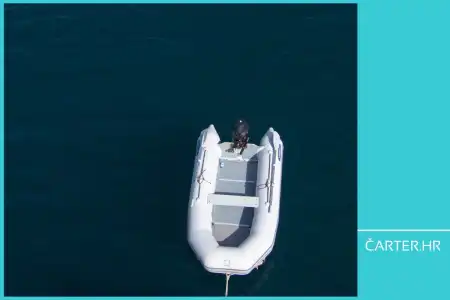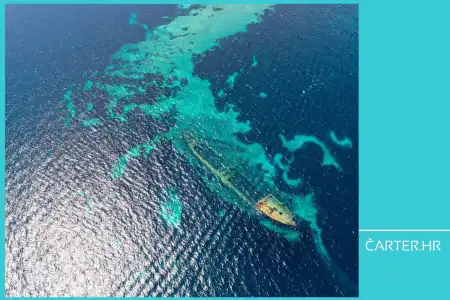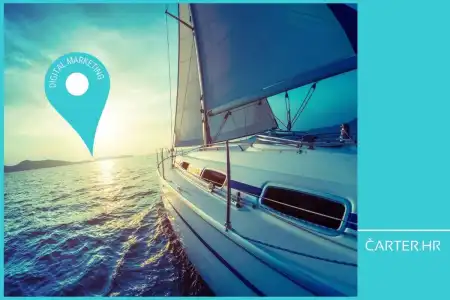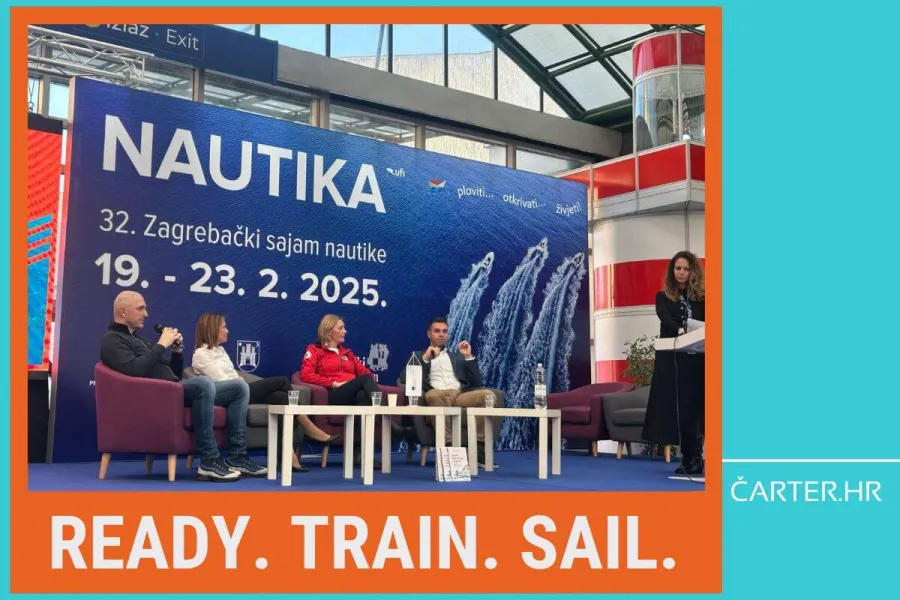
Croatia urgently needs a national campaign to improve navigation safety and educate all participants in the nautical sector. At the READY. TRAIN. SAIL. panel, held at the Zagreb Boat Show, experts emphasized the necessity of mandatory skipper education, better institutional cooperation, and raising safety standards. The discussion demonstrated strong support for the initiative, and the organizer, Adria Libar, announced further steps toward systematically improving maritime safety.
Croatia urgently needs a national campaign that will connect all segments of safety and education in nautical activities. Maritime safety, skipper education, and responsible nautical tourism were discussed on February 20 at the panel "READY. TRAIN. SAIL." held at the 32nd Zagreb Boat Show.
The organizer of the panel, Adria Libar, a maritime training center that continuously works on education in the maritime and nautical fields, together with panelists who spoke concretely and openly, demonstrated through this panel that this is a topic of broader societal interest.
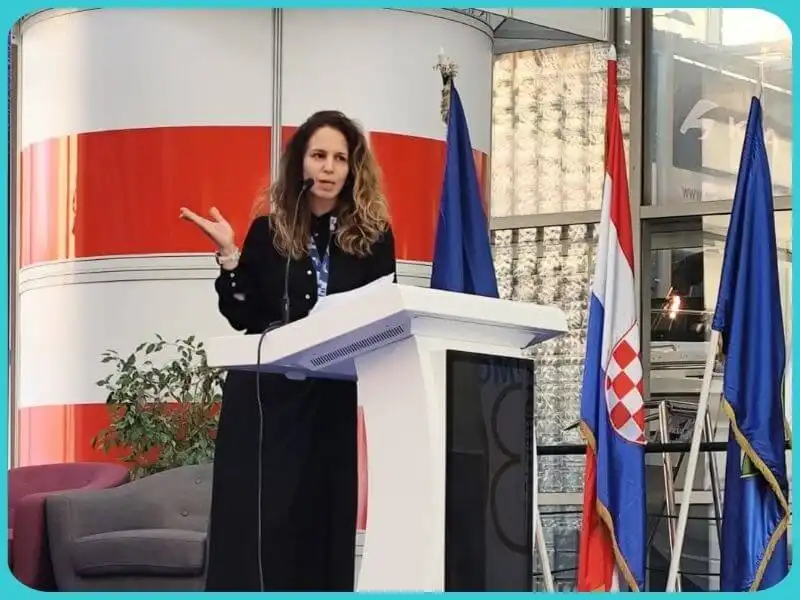 The panel was moderated by Katarina Barić, a representative of the training center, and the panelists were:
The panel was moderated by Katarina Barić, a representative of the training center, and the panelists were:
- Mislav Deković, yacht captain and instructor in nautical courses and basic safety training courses at the Adria Libar maritime training center
- Dr. Tatjana Jukić, instructor and long-time first aid lecturer in lifeguard training courses of the Croatian Red Cross
- Zlatko Vodanović, representative of the HGK Charter Activities Group and director of the charter company Adriatic Sailing
- Ornela Krezić, manager of Green Sail, an organization that promotes ecological sustainability and environmental protection
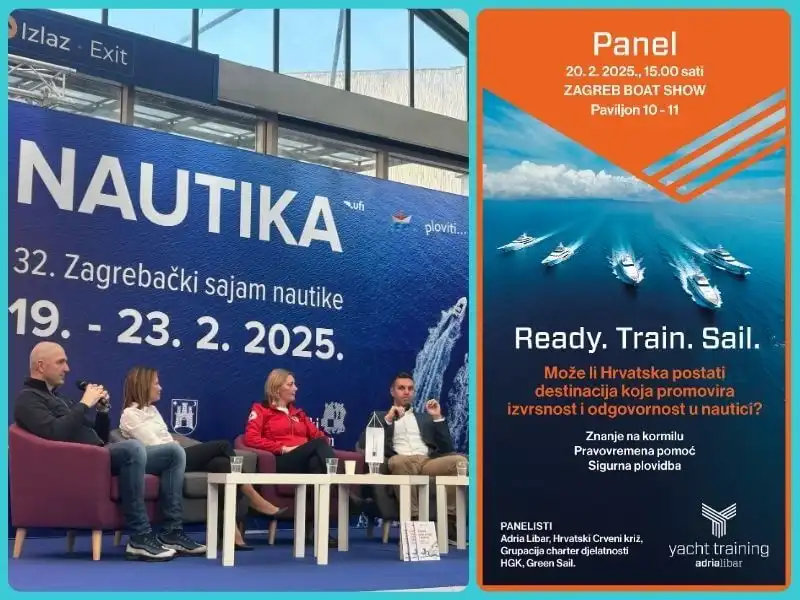
Although a representative from the Navigation Safety Directorate of the Ministry of the Sea, Transport, and Infrastructure, whose opinion was crucial for understanding procedural frameworks and laws as well as the next steps in regulating education and safety, was not present at the panel, the positive reactions of participants and the audience proved that the initiative for a national maritime safety campaign has strong support.
As always, the focus was on field operators alongside Adria Libar (in the field of education) and the selection of panelists who, by providing concrete answers to questions, demonstrated a willingness to work and progress in the industry, aware of the necessary changes. The discussion was conducted with a clear vision that the campaign must have institutional support through legislative changes that are essential for the implementation of safety rules and interventions at sea.
The goal of the panel was to discuss the current state of maritime safety in Croatia, define key issues, and propose solutions that would, through a national campaign, improve the responsibility of the nautical community.
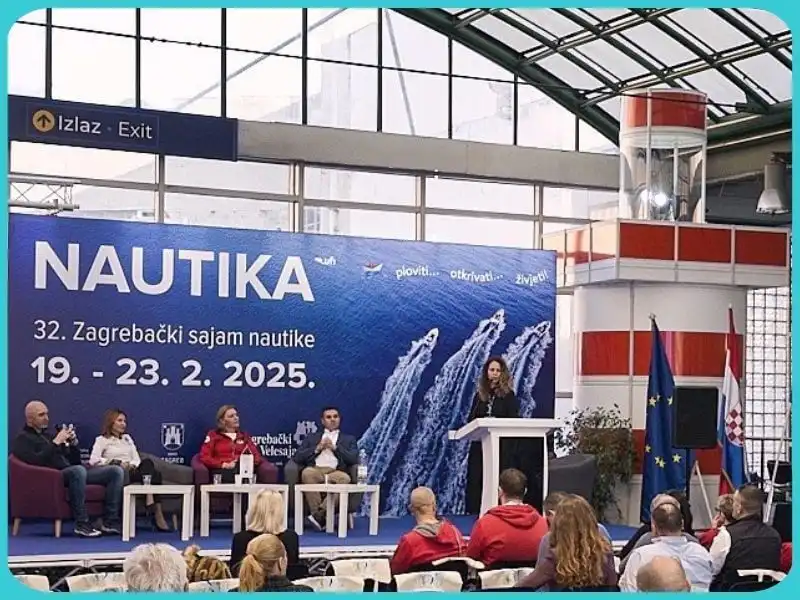
Key issues and solutions
1. Mandatory education for skippers
Instructor Deković spoke about how seriously the training center takes its role as an educator through the way training programs for skippers and crews (both recreational and professional) are conducted, as well as safety training on board, which should be part of the regulations and a mandatory requirement for all those responsible for operating vessels.
This is part of the training prescribed by an international organization and should be included as a standard for crews, as the training focuses on the proper use of rescue equipment, knowledge of procedures and the use of equipment in case of a fire on board, life-saving techniques, knowledge of emergency and correct responses until the arrival of emergency services, activation of safety flares, distress calls (where seconds can mean the difference between life and death), knowledge of communication protocols, and other topics that are essential for safe navigation.
He emphasized that through such activities at fairs, the training center aims to raise awareness of the necessary education in the nautical sector but that there must also be an insistence on legislative changes and standards to achieve a professional level.
One of the biggest issues highlighted was the fact that in Croatia, recreational skippers can obtain licenses without mandatory theoretical and practical training, while licenses for professional skippers include only a small portion of safety training in the program, meaning that the obligation for safety education on board is a choice rather than a requirement for professionals at sea.
This means that there is currently a large number of people at sea operating vessels with questionable knowledge of navigation rules, maneuvering, and meteorology, let alone safety procedures, which increases the risk of accidents. One of the main conclusions of the panel was that education must become a priority through clear regulations and standards. It is urgently necessary to introduce a mandatory course as a prerequisite for obtaining licenses, as is the practice in other European nautical countries.
2. Cooperation between institutions and the sector
The Croatian Red Cross, the Adria Libar maritime training center, and Green Sail have expressed their willingness to contribute to the education of all participants in nautical activities through their training programs, from guests planning to visit the destination to recreational skippers and professionals in the charter industry.
They emphasized the need for cooperation between institutions, educational establishments, and the nautical sector to ensure that safety standards become universal and clearly presented. Their goal is to create a system of continuous training, where seafarers would have access to knowledge about safety procedures, first aid, and responsible vessel management.
It was highlighted that destinations where nautical education is part of the culture, as well as regulations and a professional approach to work, stand out in the competitive tourism market.
Dr. Jukić emphasized that the goal of the Croatian Red Cross is to encourage individuals and the community to engage in life-saving education at sea and on land, providing practical advice and information that can and must be implemented in navigation and work. Additionally, she urged state institutions to involve the Croatian Red Cross and medical experts as partners in safety procedures, including campaigns targeting seafarers.
Dr. Jukić highlighted the importance of seafarers being prepared for emergency situations at sea and providing first aid by recognizing symptoms of serious conditions such as heart attacks, heat strokes, or hypothermia, and how the lack of education can be crucial in isolated conditions like the sea and the remoteness of certain locations. As an expert, she explained the preventive aspects of education and preparation for critical situations.
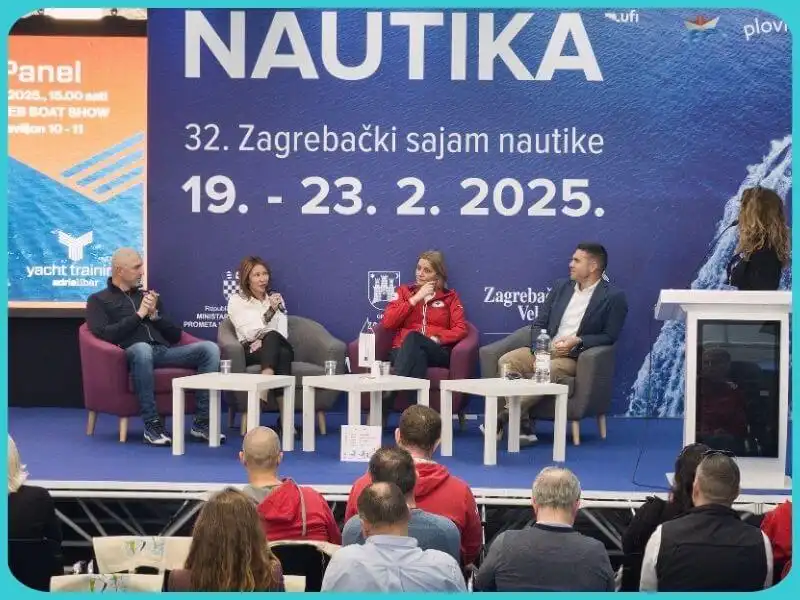
Ornela Krezić, manager of Green Sail, presented an example of an organization actively involved in educational campaigns, offering support for accident prevention and environmental protection through various constructive and responsible learning models with an environmental focus. She also highlighted positive examples of awareness and certification of marinas, charters, and skippers who understand the value of sustainability and safety and recognize the reputational benefits of certification worldwide. So far, 34 marinas have participated in the certification program, continuously upgrading their knowledge every two years.
Additionally, more than 1,000 participants have successfully completed Green Sail online courses on marine sustainability, climate change, and the basics of sustainability in yacht chartering in Croatia.
The team has also developed the Green Sail Footprint system, which ensures precise data on the environmental impact of vessels. Ornela addressed obstacles as well as concrete proposals for a development strategy linking safety, sustainability, and education in the nautical sector, which can provide valuable guidelines for improving standards in Croatia and creating a safer and more environmentally responsible nautical destination.
3. Charter industry and vessel safety - The nautical sector supports safety standards
The Charter Activities Group, established in 2007, currently operates with around 80 active members whose goal is to improve business conditions in terms of legal regulations and commercial conditions, enhance the level of charter services with an emphasis on navigation safety, train personnel, implement environmental policies, and better promote nautical tourism in Croatia as a nautical destination.
Zlatko Vodanović, a representative of the Group, spoke about the fleet's safety standards and emphasized that most charter boats in Croatia meet the standards and that the technical aspect of the prescribed standard is not in question in terms of quality and safety level. However, he also pointed out that there is room for improvement through collaboration with institutions in educating guests and crews about behavior, maneuvering, meteorology, and all the "accompanying" topics that result in a higher level of safety.
This discussion opened the topic of communication with the relevant institutions and the issues that need to be addressed more promptly, ensuring that another season does not pass with the same situations the charter industry has been warning about for years. He also highlighted that in recent meetings of the Group, discussions have focused on the need for more formal education that follows changes in the charter business, alongside the technological and digital development of services and vessels, which can further contribute to raising safety levels. This would also create and strengthen the comparative advantage of Croatia's charter offering in relation to the competition.
The Group is aware, through every participation in international fairs, that the presentation of Croatia to the world needs to change and highlight positive examples of prescribed safety aspects.
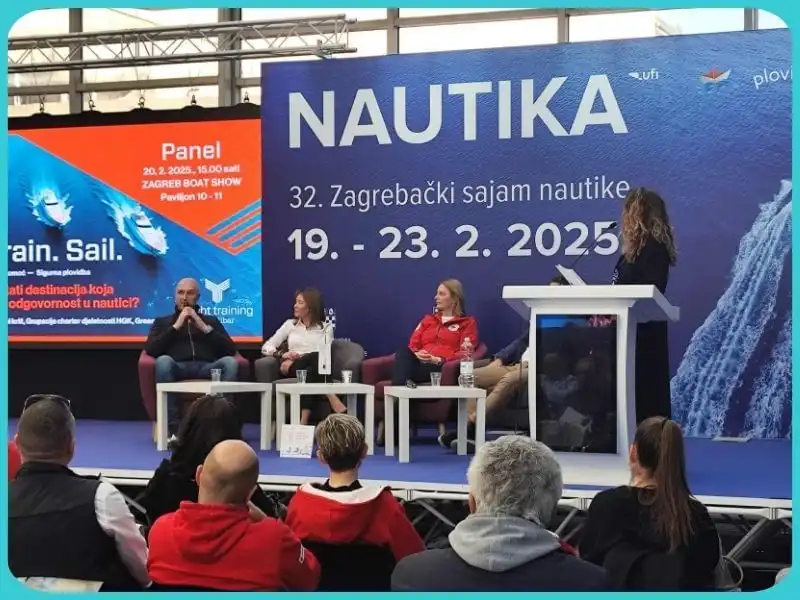
Safe nautics as a Croatian brand - The initiative moves forward
The conclusion of the panel was that for Croatia, as one of the world's leading nautical destinations, safety and education must become a fundamental part of its identity. Safety must become a standard, not an option.
Media representatives also agreed that maritime incidents should be reported on to raise public awareness of the risks at sea, and to present Croatia as a destination that has a clear vision of safety in nautical tourism.
The panel organizer, the Adria Libar maritime training center, thanked the panelists and the audience for their support, marking this as the first step toward change. They also announced a joint initiative for a national campaign that will be addressed to the relevant ministries of the sea and tourism.
Categories of trends
- News
- Sale
- Marketing
- SEO
- Web design
- Social media
- Technology
- Regulations
- Management
- Education
- Finances
- User experience
Newsletter
Sign up for the newsletter and receive the latest trends and tips straight to your inbox
